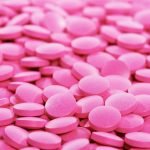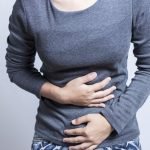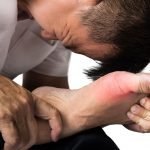European Parliament Releases Report Demonstrating Endocrine-disrupting Chemicals (EDCs) Pose Serious Health Threat
Node Smith, ND
The Endocrine Society applauded the European Parliament’s release of a report demonstrating that endocrine-disrupting chemicals (EDCs) pose a serious threat to the health of current and future generations and illustrating the need for additional action by policymakers in the EU to address this issue.
Endocrine Society pleased with European Parliament’s Report on EDCs and serious health risks
The scientific report, which was commissioned by the Parliament’s Committee on Petitions, highlights areas of consensus in the research community that show how current regulations are limited in their ability to identify safe levels of exposure and fail to protect consumers from the effects of exposure to chemical mixtures.
Report calls on the EU to govern all types of endocrine-disrupting chemicals
The report calls on the European Union (EU) to develop a set of coordinated regulations governing all types of endocrine-disrupting chemicals in order to minimize human exposure. Currently, chemicals are often regulated as separate classes based on their use. The report notes that the current regulation is not coherent with the European Commission’s aim to minimize overall exposure of humans and the environment to EDCs.
The report summarizes scientific knowledge regarding the health effects of endocrine-disrupting chemical exposure and offers recommendations to better protect public health. Endocrine-disrupting chemical experts Barbara Demeneix, Ph.D., of Muséum National d’Histoire Naturelle in Paris, France, and Rémy Slama, Ph.D., of INSERM (National Institute of Health and Medical Research), in Grenoble, France, wrote the report. Both Demeneix and Slama are Endocrine Society members.
What is an EDC and what does it do to the body?
An EDC is a chemical that mimics, blocks or interferes with the body’s hormones. Children, unborn children, and adolescents are particularly vulnerable to their effects because their bodies are still developing, and hormones play a key role in that process. EDCs contribute to serious health problems such as diabetes, obesity, neurodevelopmental disorders and reproductive problems.
Additional research in EDCs is called for by Endocrine Society
The Endocrine Society supports the report’s call for additional research in EDCs. The research priorities identified in the study are consistent with those identified in the Endocrine Society’s second scientific statement on EDCs. Additional study of these topics will help accelerate the identification and appropriate regulation of new EDCs.
Accelerate test development urged for validation of all hormone pathways
The Society also agrees there is a need to accelerate test development and validation for all hormone pathways, which is a key recommendation in the report. Testing methods should incorporate new, more sensitive endpoints relevant to human and ecological health. Innovative strategies are needed to evaluate hormone systems beyond estrogen and androgen pathways.
Concerns expressed as recently as November on communication for a failure to protect children and vulnerable populations from EDC exposure
In its position statement issued last year, the Society called for the EU to revise its 1999 strategy on EDCs. Action is needed to take into account the latest scientific evidence and minimize human exposure to hazardous EDCs. In November 2018, the Society expressed concerns that the Commission`s communication for a new endocrine disruptor framework failed to address the urgent need to protect children and other vulnerable populations from EDC exposure.
 Node Smith, ND, is a naturopathic physician in Humboldt, Saskatchewan and associate editor and continuing education director for NDNR. His mission is serving relationships that support the process of transformation, and that ultimately lead to healthier people, businesses and communities. His primary therapeutic tools include counselling, homeopathy, diet and the use of cold water combined with exercise. Node considers health to be a reflection of the relationships a person or a business has with themselves, with God and with those around them. In order to cure disease and to heal, these relationships must be specifically considered. Node has worked intimately with many groups and organizations within the naturopathic profession, and helped found the non-profit, Association for Naturopathic Revitalization (ANR), which works to promote and facilitate experiential education in vitalism.
Node Smith, ND, is a naturopathic physician in Humboldt, Saskatchewan and associate editor and continuing education director for NDNR. His mission is serving relationships that support the process of transformation, and that ultimately lead to healthier people, businesses and communities. His primary therapeutic tools include counselling, homeopathy, diet and the use of cold water combined with exercise. Node considers health to be a reflection of the relationships a person or a business has with themselves, with God and with those around them. In order to cure disease and to heal, these relationships must be specifically considered. Node has worked intimately with many groups and organizations within the naturopathic profession, and helped found the non-profit, Association for Naturopathic Revitalization (ANR), which works to promote and facilitate experiential education in vitalism.
Node Smith graduated from the National University of Natural Medicine (NUNM) in 2017, and is currently licensed as a naturopathic physician in Oregon and working towards becoming licensed in Saskatchewan, Canada as well.










